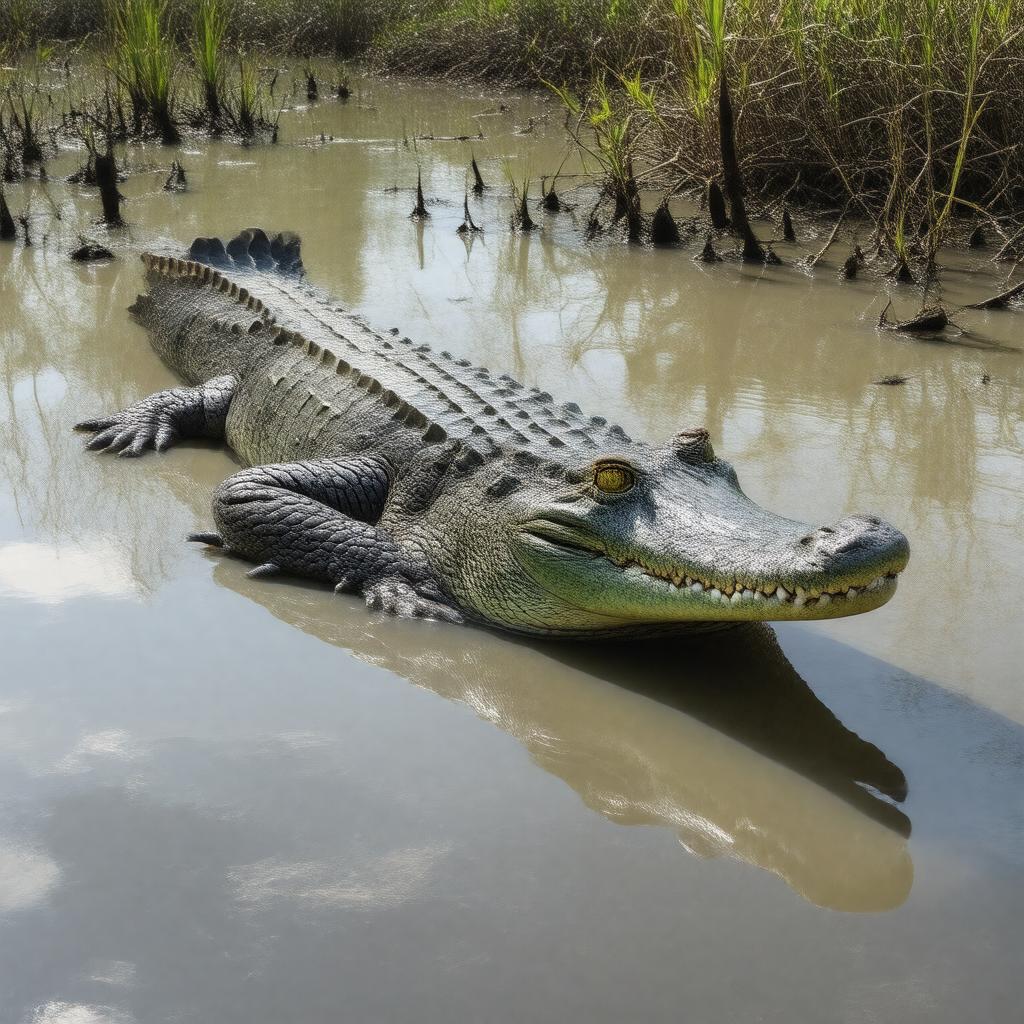Prompt
"Generate an image of an American crocodile (Crocodylus acutus) in its natural habitat, a mangrove swamp in southern Florida. The crocodile should be depicted in a realistic and detailed manner, showcasing its distinctive long, narrow snout and gray-green coloration. The image should convey a sense of the animal's vulnerability due to habitat loss, illegal hunting, and pollution, with a subtle hint of a threatened ecosystem in the background."

